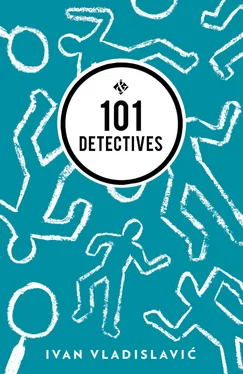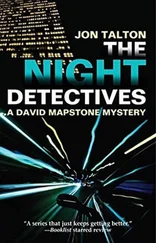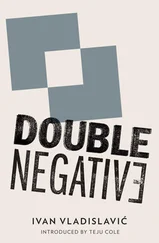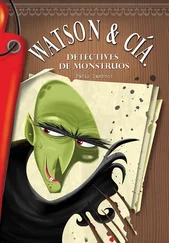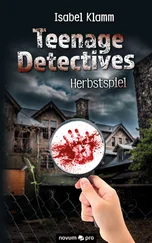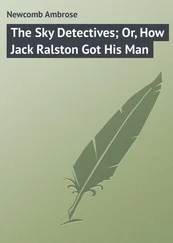Ivan Vladislavic - 101 Detectives
Здесь есть возможность читать онлайн «Ivan Vladislavic - 101 Detectives» весь текст электронной книги совершенно бесплатно (целиком полную версию без сокращений). В некоторых случаях можно слушать аудио, скачать через торрент в формате fb2 и присутствует краткое содержание. Год выпуска: 2015, Издательство: And Other Stories Publishing, Жанр: Современная проза, на английском языке. Описание произведения, (предисловие) а так же отзывы посетителей доступны на портале библиотеки ЛибКат.
- Название:101 Detectives
- Автор:
- Издательство:And Other Stories Publishing
- Жанр:
- Год:2015
- ISBN:нет данных
- Рейтинг книги:4 / 5. Голосов: 1
-
Избранное:Добавить в избранное
- Отзывы:
-
Ваша оценка:
- 80
- 1
- 2
- 3
- 4
- 5
101 Detectives: краткое содержание, описание и аннотация
Предлагаем к чтению аннотацию, описание, краткое содержание или предисловие (зависит от того, что написал сам автор книги «101 Detectives»). Если вы не нашли необходимую информацию о книге — напишите в комментариях, мы постараемся отыскать её.
and
, invites readers to do some detective work of their own. Each story can be read as a story, but many hide clues and patterns. Whether skewering extreme marketing techniques or constructing dystopian parallel universes, Vladislavic will make you look beyond appearances.
101 Detectives — читать онлайн бесплатно полную книгу (весь текст) целиком
Ниже представлен текст книги, разбитый по страницам. Система сохранения места последней прочитанной страницы, позволяет с удобством читать онлайн бесплатно книгу «101 Detectives», без необходимости каждый раз заново искать на чём Вы остановились. Поставьте закладку, и сможете в любой момент перейти на страницу, на которой закончили чтение.
Интервал:
Закладка:
It would be better, I knew, not to touch them at all. The custodians of archives and museums wear cotton gloves in the interests of preservation — not of the objects, but themselves. Allowing these memory-laden, use-soiled things to come into contact with living, breathing skin is dangerous. A prophylactic barrier is advised.
In the following weeks, as I began to pack up my household in earnest, I realised that I had misread the message of Claude’s trunks. They were more than a warning about a debilitating fascination with the leavings of one life, assembled here in tin and leather and glass; they were a prophecy of the distasteful end that awaits all those who set too much store by the written word. The pointlessness of paper.
Let me be frank: Claude’s trunks were not my only burden. I already had Louis Fehler’s trommel.
A decade earlier, Louis Fehler (not his real name) had left me his papers to look after while he went abroad, travelling light, and then promptly died. I’d been carrying his blue trommel around with me ever since, packed with outlines of novels, biographical notes and other things, unsure what to make of them.
It’s a problem, clearly, that people give me their papers. The reason is obvious: I hoard such enormous quantities of my own. My house looks like a public library or some archive of the ordinary; I cannot get rid of a book or throw away a receipt from Pick n Pay. What difference will another little stack of documents make? I am like an animal lover who gets a reputation for taking in strays. The book lover.
Of course, there’s more to it than storage. These papers are entrusted to me, placed in my care and assigned as my responsibility. People put their papers, or the papers of their departed loved ones as the case may be, in my hands, because they want me to read them, think about them, edit them or otherwise reorder them, and write about them. They would like me to make something of their leavings.
I tried to explain this to the movers, but they were irritated. The trommel bothered them less than the trunks, which I had failed to include on the inventory for the quotation (they had not yet come into my possession at that time). No matter, they wanted me to unpack the contents of the trunks into smaller boxes. They would injure themselves trying to move these coffins , they said, it was unreasonable of me to ask. Finally they relented and said they would move them as they were, but they made it clear they would not be held accountable for any damage done to my property in the process. They fetched a trolley with two wheels and upended the smallest trunk on its scoop. As if to demonstrate that their warnings had been in earnest, on the way out to the truck they dragged the trolley through flower beds, cracked two tiles on the path and knocked a chunk of plaster out of the gatepost.
The trunks were conveyed to a self-storage depot next to the highway near the Gosforth Park toll plaza and stacked along with my own possessions. They looked like ancient sarcophagi among my flimsy boxes. The men were right, not coffers but coffins. Even Louis Fehler’s trommel felt insubstantial by comparison. In the stuffy interior of the sealed storage unit, they smelt like old, unwashed bodies.
Why had I taken on these other lives? Did I hope to ballast my own record with others that were weightier, more complete? Their proximity repulsed me.
‘We are stories.’ It’s a notion so simple even a child could understand it. Would that it ended there. But we are stories within stories. Stories within stories within stories. We recede endlessly, framed and reframed, until we are unreadable to ourselves.
When I returned from abroad in a new century, a time to take stock and start afresh, I found a room in a hotel. From there I was able to undo the ravages of my tenants’ stay and make some alterations to the outbuildings at my house. At last, after weeks of marshalling painters, cleaners and gardeners, I was ready to move back home. On a Friday morning, I went out to the self-storage depot with the removal men and found my life packed away tidily, a little dusty but otherwise in good repair.
Leaving the trunks in storage was my idea, but the movers seized on it with relief. It was no spur-of-the-moment decision: I had reasoned it through over many months. It would be a good thing, I decided, to keep some distance between myself and Claude’s effects, a professional distance. If I moved them back to my house, they would all too easily seem like mere possessions and the impetus to do something about them might be lost. My study was already crammed with redundant paperwork, things I knew it would be interesting to go through — letters, journals, notebooks — if I could only find the time. Better to keep Claude’s trunks in a separate place. As soon as I had settled back into my work routine, I would come out regularly to the storage unit and look at them properly and systematically. It might be necessary to draw up a schedule. It would be like going to the office or to the archives to do some research. If my researches revealed that the trunks did indeed contain a story worth telling, I could retrieve them and unpack the material in my study. Before then, I would have the opportunity to sift through it all, setting the important things aside and shedding the dross. Then again, if I came to the conclusion that the material was worthless, inaccessible or uninteresting, I could dispose of it directly, without cluttering up my home.
I did not need an entire storage unit for four trunks. Fortunately, in addition to the full-scale unit I had been leasing (the ‘Householder’), the depot also made available half units (the ‘Voyager’) and quarters (the ‘Weekender’). The last was perfect for my purposes.
When the removal men had finished loading my furniture and boxes onto the truck, they moved the trunks into a ‘Weekender’ unit in a separate block. They did not complain this time: there was a porter’s trolley at hand and the walkways between the blocks were flat and evenly paved. Like the full-scale unit, this one had a metal roller door and a fluorescent light, and was equipped with wooden pallets to raise things off the floor to avoid potential water damage. There was more than enough space. The four trunks did not even have to be stacked. Instead, they were set out beside one another, where each one was easy to open. There was room too for Louis Fehler’s trommel. It looked quite manageable and contained. I went back home with the sense of a job well done, although in truth the job had not yet started.
What I did carry with me was the half-dozen boxes containing Claude’s personal library, which I moved into my study.
The months passed. My plans for the trunks did not work out. In fact, keeping them at the self-storage depot had the opposite effect to the one I anticipated. I was able to forget about them for weeks at a time. Whenever I did think about them, and tried to schedule a ‘research trip’, Gosforth Park seemed a long way to go.
At the end of the year, when I sat down to look at my budget, I saw that it had cost me R2000 to keep the trunks in storage. I recalled the fact that these same trunks had lain in a warehouse in Cape Town for nearly fifty years and the derisive note I had once made about how Berti and Claude had squandered good money on such a foolish thing. Here I was, struggling to find work, with no money to take a holiday, and doing exactly the same thing. It was high time I cancelled the contract with the depot.
So it was that I spent one weekend of the Christmas break retrieving Claude’s stuff. The laden trunks were too heavy to move and the only solution, short of hiring a moving company again, was to unpack their contents into smaller boxes and then move these and the empty trunks separately. With an archivist’s precision, each trunk was numbered and each box labelled, so that its contents could be returned to the right trunk, and to the right quadrant and level in each trunk, after the move.
Читать дальшеИнтервал:
Закладка:
Похожие книги на «101 Detectives»
Представляем Вашему вниманию похожие книги на «101 Detectives» списком для выбора. Мы отобрали схожую по названию и смыслу литературу в надежде предоставить читателям больше вариантов отыскать новые, интересные, ещё непрочитанные произведения.
Обсуждение, отзывы о книге «101 Detectives» и просто собственные мнения читателей. Оставьте ваши комментарии, напишите, что Вы думаете о произведении, его смысле или главных героях. Укажите что конкретно понравилось, а что нет, и почему Вы так считаете.
